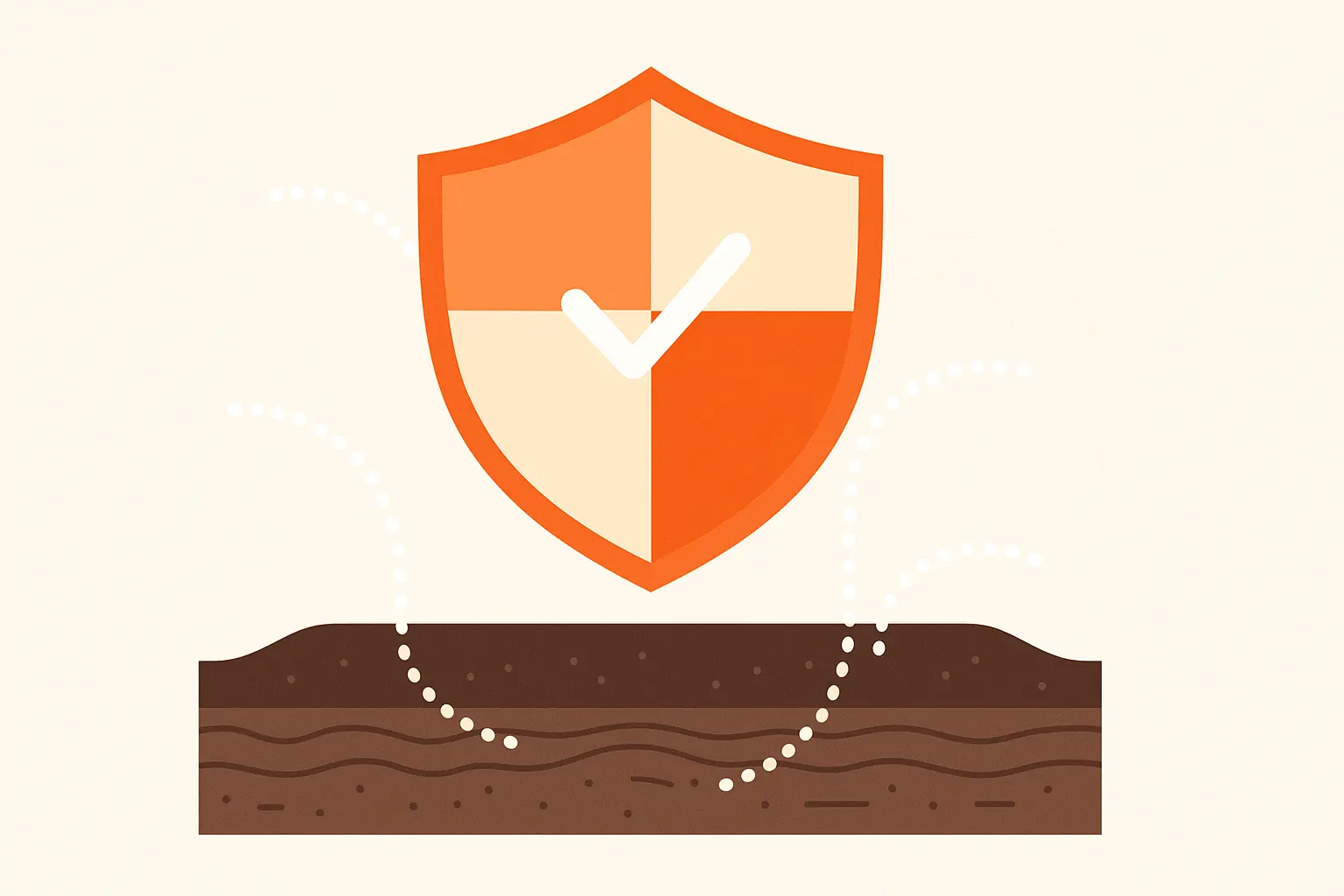When environmental attorneys discover what grease recyclers already know about compliance marketing
By Jorge Argota, Co founder of Grease Connections
During my transition from legal marketing to grease recycling, I discovered something fascinating: restaurant grease traps and industrial discharge permits share the same DNA. Both exist at the intersection of environmental compliance, regulatory fear, and preventive maintenance.
More importantly, the strategies that keep restaurants out of FOG (Fats, Oils & Grease) trouble mirror exactly what keeps industrial clients out of EPA crosshairs.
The Parallel Universe of Environmental Compliance
Same Regulators, Different Waste Streams
In grease recycling, we navigate municipal FOG ordinances and EPA pretreatment rules daily. Environmental lawyers? They’re dealing with the same agencies through the Clean Water Act, RCRA, and state DEQ requirements.
The revelation: Both industries succeed or fail based on how well they translate regulatory complexity into client action.
Real-World Example: When Austin’s Water Utility increased grease trap inspection frequency by 400% in 2023, we used the same client communication strategy environmental firms use for new PFAS regulations:
- Immediate client alerts
- Simplified compliance checklists
- Proactive audit offerings
- Media positioning as the go-to expert
Result: 34% increase in compliance audit requests within 30 days.
The Invisible Risk Problem
In Grease: Fatbergs form invisibly until they cause catastrophic sewer overflows. By then, it’s a $100,000+ emergency.
In Environmental Law: Groundwater contamination spreads silently until it triggers a Superfund designation. By then, it’s a $10M+ nightmare.
The Shared Solution: Proactive monitoring and documentation. Our IoT sensors that track grease levels? They’re conceptually identical to groundwater monitoring wells. Both turn invisible risks visible before they explode.
Five Strategies Environmental Lawyers Can Steal from Grease Haulers
1. Compliance Calendar Automation
Our drivers carry tablets with digital manifests that auto-populate EPA pretreatment documentation. Time-stamped, GPS-verified, cloud-stored. Sound familiar? It should – it’s the same system environmental consultants use for SPCC inspections.
The Innovation: We’ve connected our manifest system to automated client reminders. Restaurant gets alerted 72 hours before their tank hits capacity.
For Environmental Lawyers: That same Zapier workflow could ping industrial clients 30 days before discharge monitoring reports are due. Market it as “zero-fine insurance” and watch retainers roll in.
2. Geographic Clustering for Profit
Grease routes are optimized so densely that adding one more stop barely impacts costs. We’ll sign three restaurants on the same block and triple revenue without tripling expenses.
For Environmental Lawyers: Build heat maps of potential violators near existing clients. If you’re already sampling at one metal plater, pitch a “multi-site compliance review” to their three neighbors. Same trip, 4x billables.
3. Crisis-to-Content Pipeline
When San Francisco’s $85,000 fatberg hit the news, we had content live in 4 hours:
- Blog post explaining prevention
- Local TV interviews booked
- Email to every restaurant within 30 miles
- Social media infographics
For Environmental Lawyers: Next time EPA proposes new PFAS limits, be the firm with a client FAQ published before close of business. The attorney who explains it first owns the news cycle.
4. Turning Waste Into Wealth
Our Pitch: “Your used oil isn’t waste – it’s worth $1.14/gallon as biodiesel feedstock. We’ll pay you for what others charge to haul.”
Environmental Law Equivalent: “Your contaminated site isn’t just liability – it might support a CERCLA cost-recovery action against previous owners.”
Both messages reframe problems as opportunities. Clients love hearing how their compliance burden might actually generate revenue.
5. The Compliance Bundle Strategy
We discovered restaurants needing grease collection also need:
- Hood cleaning
- Grease trap pumping
- Floor drain maintenance
- Compliance documentation
So we bundle them. One vendor, one invoice, total peace of mind.
For Environmental Lawyers: Package complementary services:
- “Green Kitchen Compliance”: FOG audit + stormwater pollution prevention plan
- “Industrial Trifecta”: Air permits + water discharge + waste manifests
- “ESG Ready”: Environmental audit + sustainability reporting + PR strategy
The Data That Drives Both Industries
Shared KPIs That Actually Matter
| Metric | Grease Recycling | Environmental Law | Why It’s Gold |
|---|---|---|---|
| Cost per prevented violation | $0.55/gallon collected | $850/compliance hour | Prevention ROI beats litigation every time |
| Documentation accuracy | 99.7% manifest completion | 99.9% permit accuracy | One missed checkbox can trigger $25K fines |
| Response time to regulatory changes | <72 hours | <48 hours | First to explain wins the clients |
| Client retention via proactive alerts | 94% annual renewal | 89% retainer renewal | Preventing problems creates lifetime clients |
Real Client Wins from Cross-Pollination
Case Study: The Restaurant Chain That Needed Both
A 47-location fast-food chain came to us for grease collection. During our compliance audit, we discovered:
- Missing stormwater permits at 12 locations
- Improper hazardous waste storage at 8 locations
- No spill prevention plans despite 500-gallon oil tanks
We partnered with an environmental firm using our same proactive approach. Result: $2.3M in avoided fines, plus a integrated compliance system that manages everything from fryer oil to parking lot runoff.
Why This Matters Now
Environmental compliance is entering a new era:
- Stricter municipal enforcement (FOG fines up 300% since 2020)
- ESG reporting requirements affecting restaurants
- Supply chain sustainability audits reaching kitchens
- Insurance companies requiring environmental documentation
The firms and service providers who understand both sides of environmental compliance – from grease traps to groundwater – will own this emerging market.
The Bottom Line
Whether you’re preventing fatbergs or fighting Superfund designations, success follows the same formula:
- Make invisible risks visible through monitoring
- Automate compliance documentation
- Turn crisis headlines into educational content
- Bundle services for comprehensive protection
- Reframe compliance costs as investment ROI
Take Action
For Environmental Lawyers: Study how grease recyclers market mundane compliance as essential protection. Their 93% close rate has lessons for your intake team.
For Restaurants: Work with providers who understand the full compliance picture. At Grease Connections, we don’t just collect oil – we protect you from the entire universe of environmental liability.
- Explore our Environmental Compliance Approach
- Download our FOG Regulations Guide
- Schedule a Comprehensive Compliance Audit
Jorge Argota brings 15+ years of legal marketing expertise to environmental compliance. As founder of Grease Connections, he’s proven that the documentation rigor of environmental law and the operational efficiency of grease recycling create a powerful combination for protecting businesses and the environment.










